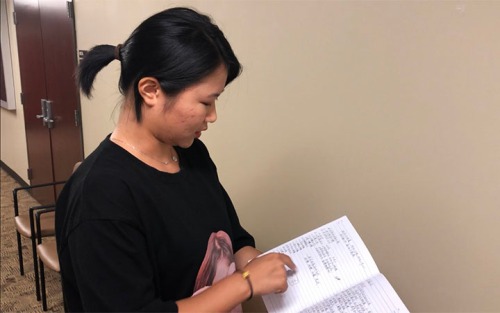Troy welcomes largest class of 1-2-1 students
- Staff Writer
- Aug 13, 2019
- 2 min read
Brady Talbert
Troy University’s 1-2-1 dual enrollment program is playing host to 166 Chinese students, the biggest class of program participants since it started with 14 students in 2014.
After studying for one year in China, students are invited to study in the United States for two years before spending their last year in their home country.
“They can get two diplomas, from both Chinese and U.S. at Troy University, so that’s a really attractive thing for them,” said Silvia Li, the Director of Special International Initiatives. “They get to be exposed to the American education system.
“I believe they can have a better job future. By coming to the U.S. for these two years, mostly, they grow up just so much and they learn everything they need to learn to be independent.”
Troy University is very proud of its international students, establishing a brand as “Alabama’s International University.”
“These students bring so much with them, and I’m proud that the 1-2-1 program has served as the cornerstone for many of our international activities,” said Chancellor Dr. Jack Hawkins Jr. said. “Today, we have 76 countries represented in our student body.”
Hawkins credits the 1-2-1 program as a key propellant of the university’s globalization.
“What we’ve attempted to do is to blend students from all over the world,” Hawkins said. “It helps students to be globally competitive when they understand people from other cultures.”
As the semester kicks off, it is graduate student Amber Guo, a sports and fitness management major, third week in the United States, and she said adjusting to American culture has taken some time. She keeps a journal of English words from language lessons and translations into her native tongue.

“Before I came here, I get nervous,” Guo said. “I have to speak English instead of Chinese. “Sometimes the teacher speaks quickly.” While the transition to western society can be a hurdle for some, Li said studying abroad helps international students mature. “You can tell from the day they come here, they are shy, and they are just timid, and just look like little kids,” she said, adding “after two years, they become just totally different, and I think they benefit so much from this program.”

Comments